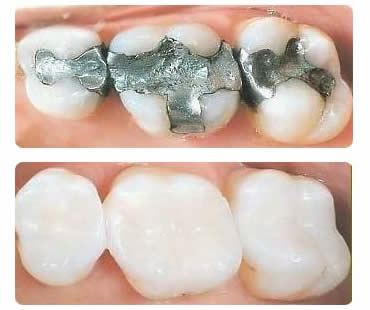
At one time, metal fillings were the only choice to repair tooth decay. Now, many dentists have switched to composite resin fillings, which match natural-tooth color so they don’t compromise the appearance of your smile. Tooth-colored fillings have gained popularity, and many dentists only offer this option. In recent years, there has been a strong push to eliminate amalgam fillings all together.
Amalgam fillings are made of several metals, with up to a 50 percent composition of mercury. It is widely known that mercury is toxic to the body. Some of the concern about amalgam fillings is the affect mercury has on the body, including:
• Causing damage to the kidneys
• Contributing to infertility
• Impacting the nervous system
• Interfering with the function of the thyroid and pituitary glands
• Posing unknown risk to a fetus
• Weakening the immune system
Because each person is different, you may have no reaction to the amalgam fillings. Over time, though, these restorations may change shape or crack, which can cause them to leak. If the fillings don’t hold up, the area may become susceptible to additional damage or decay.
At your checkup, have the dentist evaluate any old fillings to make sure they are still in good condition. You can also discuss the benefits of replacing amalgams with composite fillings. The newer restorations blend with your natural tooth coloring and require less removal of health tooth structure, which allows for a more conservative repair.
Contact one of our dental offices Kogarah and Haymarket
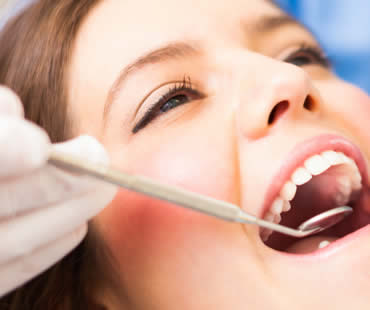
You’re sitting in your dentist’s chair for your checkup, and you hear the dreaded words that you have a cavity. Is it really a cause for panic? Modern advances in equipment and methods may surprise you about what really happens when you get a filling. Let’s learn what to expect if you need this procedure.
The first thing you and your dentist will discuss is the type of filling that is best for you. One choice is an amalgam filling. It is known for its durability, but contains a small amount of mercury which raises concerns among some patients. Another option is a resin composite filling, which is a newer material that contains more plastics. Many patients like this option because its white color is less noticeable in your mouth, but it lasts only about half as long as an amalgam filling.
The first step of the process is numbing the area, unless the cavity is very small and it’s unnecessary. First, the dentist will rub a topical numbing agent on the area, and will give you an injection after it takes effect. Many patients don’t even feel the injection after the topical numbing.
Next, the dentist will separate the area being worked on from the rest of your mouth using a rubber dam or a bite block. Once your mouth is ready, your tooth will be drilled and the decay will be removed.
The actual filling will be placed after the decay is gone. If you are receiving an amalgam filling, the hole will be filled with the metals. It will be pushed down to ensure all of the space is full, and then any overflow will be removed to make the tooth smooth. If you are getting a composite filling instead, the dentist will put some blue acid in the hole to create small holes for bonding the material. The acid is then rinsed, and a bonding agent is applied. Then the composite material will be added. A blue light will be used to harden and strengthen the material. Finally, the filling will be filed to make it smooth.
Dental fillings dentist in Kogarah and Haymarket
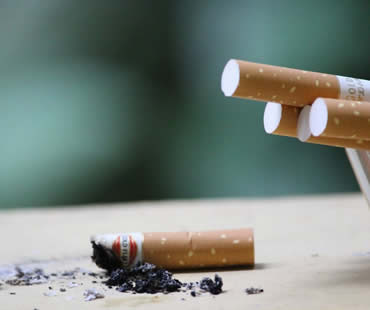
A number of serious health problems like cancer are linked to smoking, but your oral health is also at risk from using tobacco. Your teeth can be severely stained, turning them yellow or brown, and your lips can become darker too. Smokers have a higher risk of tooth decay, and bad breath is nearly inevitable. The negative outcomes of smoking continue to worsen the longer you keep doing it, so it’s highly advisable to kick the habit. However, as most smokers can attest, giving it up is not easy. Here are some tips that may help you quit smoking.
Make a list
Create a list of the reasons you’d like to quit smoking, and look at it often to remind you of your goals and the benefits you’ll achieve. These may include things like improving your overall health, restoring your smile, making loved ones proud of you, and even saving money.
Choose a date
Select a date on the calendar to stop, and stick to it. Having a concrete target can help you focus on the challenge ahead.
Ask for help
The support and encouragement from others can be a huge part of quitting smoking. Tell your family and friends about your goal, and allow them to play a part in accomplishing it.
Occupy your mouth
Sucking on sugarless candy or mints can keep your mouth busy, so you’ll be less inclined to put a cigarette in it. Chewing sugar-free gum is another great remedy for the urge to light up.
Keep busy
Try to find things to occupy your time and mind so that you aren’t constantly thinking about smoking. Take up a new hobby that involves both your mind and your hands so that you are busy with other, more beneficial, activities than puffing on a cigarette.
Contact one of our dental offices Kogarah and Haymarket
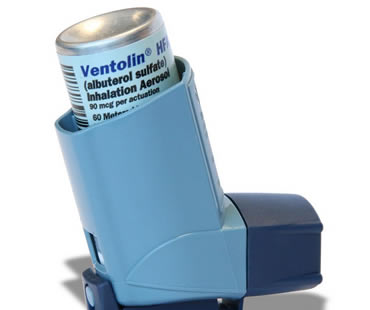
About 20 million Americans have been diagnosed with asthma, a long-term lung disease that causes swelling and narrowing of the airways. The condition has been linked to oral health, with patients having increased risk for cavities, gum problems, and bad breath.
One of the main culprits negatively impacting an asthma patient’s oral health is the medication required to treat the condition. Some medicines, such as corticosteroids, decrease the flow of saliva. This leads to dry mouth, which in turn can increase cavities and bad breath. Dry mouth is worsened by the fact that many asthma patients breathe through their mouth. Inhaled steroids can also increase the risk of thrush, which is caused by an overgrowth of yeast in the mouth.
Here are some tips for keeping your mouth safe while still controlling your asthma:
- Make sure your dentist is aware of your condition, as well as all medications that you are taking.
- Rinse your mouth with water or a fluoride mouthwash after using your inhaler.
- Consider using a spacer device with your inhaler, which will spray the medication directly into your throat and avoid some of the direct risks to your mouth.
- Bring your inhaler with you to dentist appointments, both to show it to your dentist and to have your medication available in case you experience an asthma attack at the office.
- Ask your dentist if more frequent dental visits are recommended in your case.
- Inquire about adding fluoride supplements to your routine, especially in areas where the water is not fluoridated.
- Maintain good brushing and flossing habits.
Contact one of our dental offices Kogarah and Haymarket
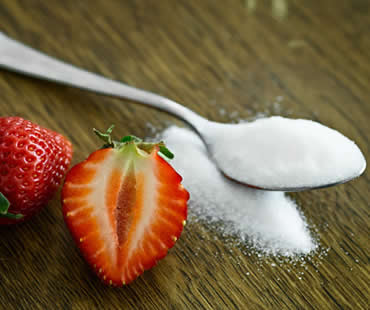
You may already know that consuming sugar brings health risks with it. It can contribute to obesity, diabetes, and heart disease, but it can also harm your teeth and gums. Even if you avoid desserts and sugary treats, you may be consuming more sugar than you realize. You should be aware that sugar is hidden in foods that you may not have considered.
Since the sweetened taste of sugar entices many people, manufacturers tend to add sugar to just about anything. Examples include crackers, condiments, salad dressing, peanut butter, yogurt, sauces, and protein bars. Manufacturers also list sugar on food labels under other names to trick people. Some alternate names for sugar are sucrose, dextrose, maltose, and molasses. Another hidden ingredient to avoid is high fructose corn syrup.
How can you avoid sugar if it’s lurking in the foods you enjoy? Here are some helpful hints in limiting your sugar intake:
- Eat whole food instead of processed food. Vegetables, fruits, and nuts are some other choices that will fill you up without the added sugar.
- Look for products that are sugarless or don’t have added sugars. Even foods labeled “low sugar” may contain more than you’d like.
- Drink sugarless beverages that won’t flood your mouth with sugar. Sodas, sweetened juices, and sweetened coffee provide lots of sugar and calories. Water is always an ideal choice to quench your thirst.
- Steer clear of artificial sweeteners, which don’t fill you up and leave you craving more sweets.
- Give yourself time to get used to having less sugar in your diet. Foods may taste less satisfying as you adjust, but you’ll get accustomed to the flavors that foods provide without the extra sweetness.
Contact one of our dental offices Kogarah and Haymarket
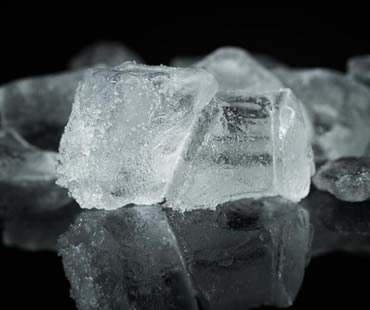
Many people think all that’s required to maintain good dental health is to floss and brush regularly. Unfortunately certain oral habits can negatively affect teeth, causing substantial damage. Trying to quit or at least curb these habits will help keep your teeth healthy and strong. Habits to avoid include:
Chewing Ice Cubes
Most of us have crunched on an ice cube on a hot summer’s day and thought nothing of it. Teeth are covered in a hard substance called enamel, but continually biting on items such as ice cubes or chewing on pencils and pens can eventually cause tiny fractures in teeth. Over time these fractures will become larger and you might require costly restorative work.
Nail Biting
Nail biting damages your nails and your teeth. You risk chipping or fracturing teeth, especially if they have been bonded or veneered. In addition, every time you put your fingers in your mouth you are transferring bacteria, increasing the risk of illness and infection.
Over Brushing Teeth
Some people think the harder they scrub their teeth the cleaner they will become. In fact you don’t need to brush your teeth particularly hard, and it’s best to choose a soft bristled toothbrush. Ask your family dentist in Kogarah and Haymarket if you’re not quite sure which brush is best.
Clenching and Grinding Teeth
Clenching and grinding is also known as bruxism and can cause teeth to become worn down, chipped and damaged, or may even lead to them becoming loose. The damage caused by bruxism can extend to your face, head and neck, and sufferers will often have headaches. Your general dentist in Kogarah and Haymarket can provide you with a custom-made night guard to prevent your teeth from biting together while you sleep.
Overusing Whitening Products
Most of us want to have a healthy white smile, and tooth whitening is one way to achieve this. Unfortunately some people take this too far and will overuse whitening products, causing tooth sensitivity and damaging tooth enamel. It’s best to book a professional tooth whitening treatment for the brightest and safest results.
Contact one of our dental offices Kogarah and Haymarket








